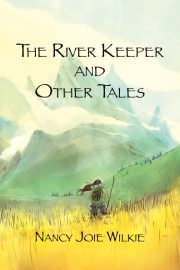A Checklist for Critiquing Science Fiction
by David Alexander Smith
- Theme and meaning. Does the story move us? So we emerge from our fictional journey emotionally engaged, or wiser than we went in? Do we remember the story after we’re done? Along the way, does the story force us to think? Do we re-examine, or see afresh, things we take for granted in our mundane universe? (If not, why is the story in an sf setting?) Does the story have a theme? Is the theme integrated with the events?
- Literature. “Literature is worth reading even when you know how the story comes out?” By that standard, is the story literature? When we read it, are we conscious of the author’s artifice or awkwardness, or is the experience so strong that we are lost in the action and forget even that there’s an author talking to us?
- Imaginativeness. Are we taken to a strange, new, exotic or interesting place? Are the new creations — aliens, technology, societies, all the microchips of life — fascinating? Are their rules of engagement consistent and credible? Are they integral to the new world we are visiting, or just arbitrarily stuck on? Do they fire out imagination?
- Premise. How well does the fictional universe come across? Is the reader truly transported into another place, a place he could imagine living in? Is the fictional universe vivid? Is it complex? If we could go there, would we want to?
- Internal Consistency. Does the fictional universe hang together? Are its institutions, governments, cultural mores, technology, history, and other large-scale actions credible? Do you believe that the society shown could really exist as it’s portrayed? Can you slam its doors without worrying that the knobs will fall off?
- Characters. Do we care about the characters we meet? Do we cheer when they succeed, cry when they fail, boo and hiss when they’re evil, applaud when they overcome their weaknesses? Do they have depth and complexity? Do we find the peripheral, ficelle, and one-scene characters entertaining in their own right?
- Motivation. Do the characters care? Do they act according to their motives (rather than being pushed around authorially like chessmen)? Do they struggle? When they oppose one another, are their conflicts logical from each one’s point of view? Do they make sensible choices given who they are and what they know?
- Believability. Do we see ourselves in these characters? Where they differ from us, do we understand how they came to be who they are? Do we say, “there but for the grace of God, go I”?
- Plotting. Does each action follow naturally from its predecessors? Is it a natural outgrowth of the personalities of the people who create it? Are the storyline mysteries natural (rather than manipulative)? Are the characters whacked around by powerful large forces that we know and appreciate? Are big things at stake? Are the characters locked in to their problem?
- Pacing, tension, and drama. Does the story hook us? Does it hook us quickly? Are we intrigued by the end of the first page? Are we drawn forward by events, always wanting to know more? Does tension swell and contract like a muscle, building to a powerful climax? Does the climax resonate with the theme? Are we on the edge of our seats?
- Dramatic economy. Do the things in which we readers invest at the story’s beginning pay off by its end? Does the story reward the careful reader with cookies of sparkling scenes, characters, insights, and dialog? Does it punish the careless one by peppering the text with information vital to the story? If we skip any twenty pages, have we missed something that we have to go back and re-read?
- Language. Is the language striking? Are we hit with eyeball kick images that make us stop and gasp? Do the sentences flow? Do they create mind pictures? Does dialog bring characters to life? Can you tell who is speaking even without attribution? Is description maintained throughout the action so that we never feel blinded or muffled/ Is the imagery rich? Is the language worth reading aloud?


